Andor, season two review: Miraculous television. And, finally, the writing Star Wars deserves
The entire world reacted with scepticism when this project was announced. It has ended up in the pantheon of the greatest TV shows ever.
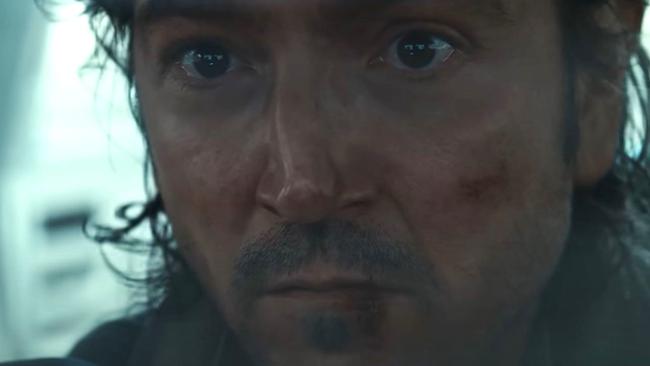
TV Reviews
Don't miss out on the headlines from TV Reviews. Followed categories will be added to My News.
Spoiler warning for all of Andor, including its final episodes
“It is always protein. It’s never icing.”
That quote, uttered by Andor showrunner Tony Gilroy back in 2022, still applies. The Star Wars show no one asked for, which revolves around a secondary character from, in fairness, a quite well-received spin-off film, is now done after a brief but dense two-season run.
And my goodness. What a triumph. I thought it wise to save the hyperbole until after the finale, just in case Gilroy and his crew managed, somehow, to screw it all up at the end. But now we can say it: this is the best content Star Wars has ever produced. In fact it’s some of the most compelling television we have seen from any creator in recent years.
It makes every other project in the franchise, in the four-and-a-half decades since The Empire Strikes Back was released, seem small and rudderless by comparison.
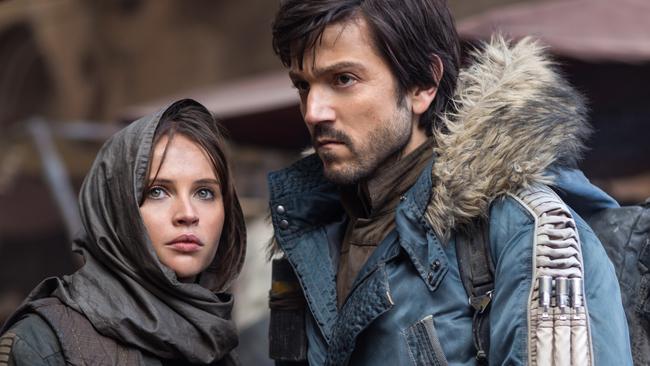
That is not intended to be quite as much of an insult as it sounds. I’ve enjoyed most of Star Wars’ output in recent years, often in appropriately rebellious defiance of its quality, because I’m an unmitigated geek who, ultimately, thinks laser swords are cool.
But so much of that recent content has been icing. Empty calories. Entertaining stuff, sure, which is tasty in the moment, but leaves no lasting impression and offers little in the way of mental nutrition.
Lightsabers. Jedi and Sith. Galaxy-rending macguffins that fall into the late-Game of Thrones trap: spectacle at the expense of story. I think a few of us, even among the most devoted fans, had subconsciously thrown Star Wars into a bucket labelled “fun, but basically unrecommendable to adults not already inside the fandom”.
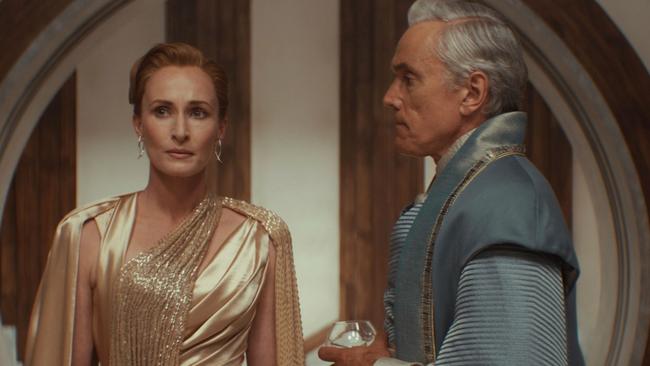
Shall we explore the catalogue?
The Acolyte was patchy at best; it offered some of the franchise’s most dazzling fight choreography, and an intriguing premise, but was kneecapped by clunky writing and central characters who never became interesting.
The Obi-Wan Kenobi show was riddled with plot holes even Ewan McGregor’s charisma could not disguise.
Ahsoka made use of perhaps the most compelling Star Wars villain ever conceived, Grand Admiral Thrawn – a character with whom Gilroy could do wonders, by the way – but got too wrapped up in its own mysticism.
The Mandalorian, which initially landed like a precious breath of fresh air on Nar Shaddaa, has veered off course into naked fan service.
And the most recent trilogy of films, featuring impeccable but wasted performances from Daisy Ridley and Adam Driver, was an incoherent mess.
Its final offering, The Rise of Skywalker, was only icing. Nothing else. And it threatened to kill off the franchise. I struggle to think of a harsher indictment than this: Star Wars would genuinely be better off, going forward, if it were to pretend the sequels never happened.
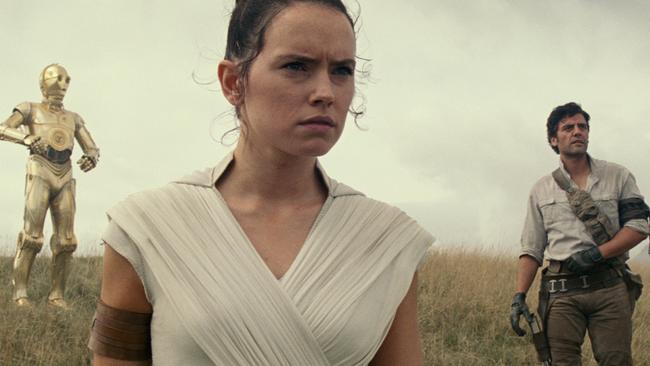
Again, I should stress that I had a decent time watching most of the content mentioned above. But I wouldn’t pretend any of it was particularly well written, or had much of interest to say.
And then we get Andor, whose writing, and thematic weight, and production, and art design – everything that goes into making a television show, essentially – is universally brilliant.
This is one of the most quotable shows, and one of the most applicable to our real world, I have ever seen.
There is genuine wisdom in its script. Years ago series creator George Lucas said, quite famously and memeably, that Star Wars is “like poetry, it rhymes”. This is the first time that, in a mainline production, it has offered anything resembling poetry on its pages.
“I’ve given up all chance at inner peace. I’ve made my mind a sunless space.”
“Tyranny requires constant effort. It breaks. It leaks. Authority is brittle. Oppression is the mask of fear.”
“The Empire is a disease that thrives in darkness. It is never more alive than when we sleep.”
“The death of truth is the ultimate victory of evil.”
These are lines in Star Wars. Yes, Star Wars, for god’s sake! I could quote from half a dozen monologues in this show profound enough, and resonant enough, that millions of people keep rewatching them for good reason.
It is, finally, the quality of writing this inherently compelling universe has deserved since its creation. The Force, the lightsaber duels, all the flashy action set pieces, have never been even remotely as interesting a part of this story as its portrayal of the oh so human struggle to win freedom, and to defeat oppression.

It’s telling that Emperor Palpatine, the cackling, cartoonish figurehead of Star Wars’ Empire, never appears on screen in Andor, and instead looms maliciously in the background, where he is frankly a heck of a lot scarier.
(I would contrast that approach, favourably, with The Rise of Skywalker, which revived the long-dead Palpatine without explanation, and gave him a laughably nonsensical megafleet of planet-killing ships, in the most egregious example of what we mentioned earlier: spectacle overriding story.)
The shadow war between the Sith and Jedi is compelling, in its own way. Sure. But in a practical sense, it affects almost no one in Lucas’s fictional universe. Andor instead examines the cliched, but depressingly relatable, banality of evil.
It’s far more interested in the Empire’s grasping apparatchiks, who cast aside their basic morality for the thrill of power, than the blatant monster with yellow eyes and what can only be described, in the name of accuracy, as a scrotum for a face.
(No offence to Palpatine’s actor Ian McDiarmid there. The face scrotum is a towering achievement of Star Wars’ makeup department; Ian himself looks perfectly normal.)
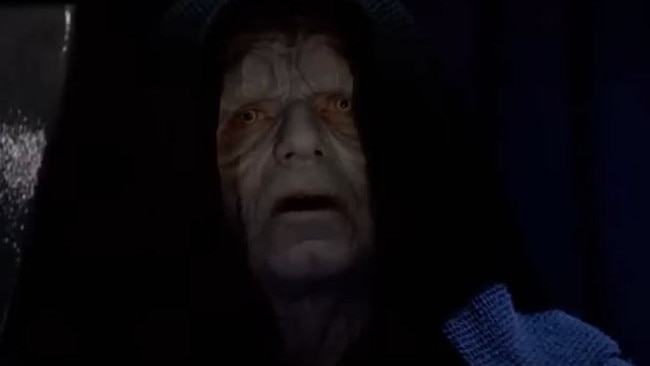
Since the final tranche of Andor’s episodes released this week I’ve done something, multiple times, that I fully acknowledge is weird even by my usual, horrendously nerdy standards. I’ve loaded up Disney Plus, and the series finale, and listened to the credits. Maybe three times in the last 24 hours.
A few minutes in, those credits transition from Andor’s quite subtle, restrained score to the far more bombastic Star Wars theme from the original film in 1977. It is actually rather dissonant. It feels like it shouldn’t fit.
But it does fit. It really does. This is the music we associate with the heroes of the original trilogy – Luke, Leia and Han – and here it is playing in tribute to a bunch of people who, in the fictional history of Star Wars, will not be remembered. And who will never, to quote Stellan Skarsgard’s character Luthen, enjoy “the light of gratitude”.
Without Cassian Andor, and Luthen Rael, and Lonni Jung, and so many other characters in this series, Luke Skywalker never gets his shot at destroying the Death Star. Never becomes a Jedi. Never gets any chance to be the guy who brings down the Empire.
He stands and rises upon the sacrifices of other revolutionaries who, to quote Luthen again, “burnt their lives” to give him that chance.
So yes, they get the hero music too.
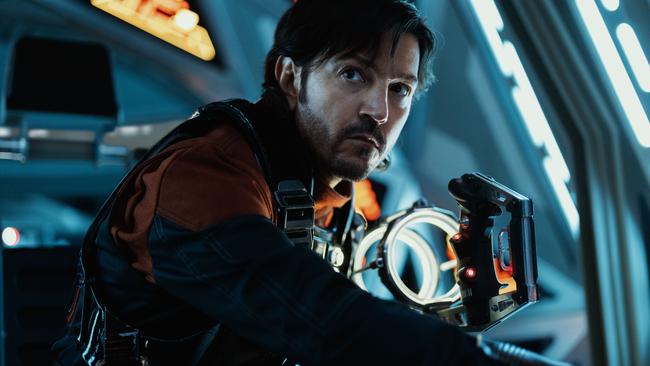
That’s the ultimate beauty of Andor. It explores the moral complexity of rebellion, and that is so, so interesting. But just as importantly, its story exists to honour those who couldn’t live to see the sunrise they’d fought so hard to create.
It’s a miraculous show. It will resonate with your soul, whether you’re a sci-fi superfan or someone who has never had even the slightest interest in Star Wars.
Sometimes a piece of work comes along which demands your attention regardless of your preferences in genre or style. Andor is one of those. The run from episodes eight to ten of this season, in particular, is of near-unsurpassed quality in the history of television.
Go watch the damn thing.
Andor, season 2: 5/5 stars. Easily.
The season is available to stream on Disney Plus
Twitter: @SamClench
Originally published as Andor, season two review: Miraculous television. And, finally, the writing Star Wars deserves



